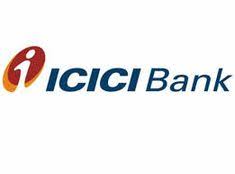Edelweiss Financial Services Limited sponsors Edelweiss Mutual Fund, and subsidiary of the company, Edelweiss Asset Management Limited, serves as Edelweiss Mutual Fund's investment manager.
On Edelweiss Mutual Fund Official Website

Updated: 29-05-2024 10:10:19 AM
The following are the different kinds of mutual funds offered by Edelweiss:
The following are the equity funds offered by Edelweiss Mutual Fund:
-ended schemeEntry LoadN/AExit LoadNilBenchmarkNifty 50 Total Return Index (50%) and CRISIL Liquid Fund Index (50%)Fund ManagerBharat Lahoti for Equity and Gautam Kaul for DebtRisk FactorModerately highInvestment Objective of Edelweiss Multi-Asset Allocation FundThe investment objective of Edelweiss Multi-Asset Allocation Fund is to generate capital appreciation via investment in a diversified portfolio comprising equity and equity-related instruments, gold ETFs, and fixed income instruments.Who is Edelweiss Multi-Asset Allocation Fund for?Edelweiss Multi-Asset Allocation Fund is ideal for investors who want to create wealth in the long term by making investments in debt, gold, and equity and equity-related instruments.
The following are the fixed income funds offered by Edelweiss Mutual Fund:
The following are the Exchange Traded Schemes offered by Edelweiss Mutual Fund:
Edelweiss Emerging Markets Opportunities Equity Offshore Fund is suitable for investors who want capital growth in the long term via investments mainly in JP Morgan Funds – Emerging Markets Opportunities Funds.
Individuals who invest in certain tax-saving mutual funds offered by Edelweiss Mutual Funds can claim tax benefits under Section 80C of the Income Tax Act. The tax-saving mutual funds offered by Edelweiss are:
Here are the entities who can invest in Edelweiss Mutual Funds:
Here are the documents you will require to invest in Edelweiss Mutual Funds:
If you wish to invest in Edelweiss Mutual Funds online, you will have to visit www.edelweissmf.com and follow the instructions on the site. You will be required to fill in the required details after which the payments will have to be authorised to complete the process.
Edelweiss is a good option if you wish to invest in mutual funds because the company offers high quality investment management services to investors. It also assesses the risk appetite of investors in an effort to help them achieve their financial goals. The company has a professional asset management team that has vast experience in the mutual fund sector. The wide variety of funds made available to investors ensures that you can find the best option for you regardless of your risk appetite.










Yes. Customers are allowed to switch either the entire investment or a part of it to another available fund. There will be no charge for a switch. For the processing of a switch, customers will be required to provide clear instructions to the asset management company. To do so, a form will have to be filled up and submitted to a transfer agent, a registrar, or at the office or an investor service centre.
Investments in mutual funds cannot be called safe with certainty. All investments come with an element of risk. However, different funds come with different risk levels and these levels will be mentioned in the objective of each fund. The low-risk funds usually make investments in debt instruments and are less risky in comparison with equity instruments. You can use the services of a fund manager to determine which investment will be the best for you.
The asset management company usually gives the redemption amount to the investor via direct debit or cheque.
Yes. Mutual funds are created primarily for small investors. Despite the fact that many small investors are not able to analyse or monitor stock market investments, mutual funds take care of the monitoring and analysis, thereby ensuring that investors get good returns.
Yes, you can appoint nominees if you are an individual investor. However, the nomination facility is not available to non-individuals such as trusts, societies, partnership firms, kartas of HUFs and corporate bodies.
An exit load is essentially a fee charged by the asset management company when an investor wishes to exit from a fund. There are plenty of schemes that have no exit load, while a good number of funds charge about 1% as exit load.
NAV, or Net Asset Value, as it is known in its extended form, is basically a value that signifies the performance of a mutual fund. It represents the market value of all the securities in which the fund has invested. NAV changes on a regular basis in keeping with the changing values of the securities.